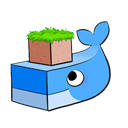Top plash Alternatives: Finding the Right Container Solution
Plash offers a unique approach to containerization, prioritizing simplicity and unprivileged operation. With its minimal requirements (Python 3, Linux kernel >= 3.18, and a basic mount binary), Plash stands out for its lightweight nature and ease of integration into various environments, from CI pipelines to embedded systems. It treats containers as regular processes, allowing for familiar management with tools like ps and kill, and provides Plashfiles for executable builds. However, for users seeking more extensive features, broader platform support, or deeper isolation, exploring plash alternative options is essential.
Top plash Alternatives
If you're looking to expand your containerization toolkit beyond Plash's focused approach, these alternatives offer diverse functionalities, from robust enterprise platforms to specialized development environments and orchestration systems.

Docker
Docker is an enterprise-focused container platform renowned for building, sharing, and running any application. It's a popular plash alternative because it offers a more comprehensive ecosystem for container virtualization, hypervisor capabilities, and server management. Docker is available on Mac, Windows, Linux, Web, and Self-Hosted environments, with both Freemium and Open Source options, making it suitable for a wide range of production and development needs.

Vagrant
Vagrant is a tool specifically designed to create and manage virtualized development environments. Unlike Plash which focuses on process-like containers, Vagrant excels at building complete, reproducible development setups, often leveraging virtual machines. It's an excellent plash alternative for developers needing consistent environments, offering features like cluster management and virtualization. Vagrant is Free and Open Source, supporting Mac, Windows, Linux, and BSD platforms.

Kubernetes
Kubernetes is an open-source orchestration system primarily for Docker containers. While Plash manages individual containers, Kubernetes (often referred to as K8s) provides robust capabilities for deploying, scaling, and managing containerized applications across clusters. It's a powerful plash alternative for complex, distributed systems, offering features like container orchestration, virtual machines, and AppArmor support. Kubernetes is Free and Open Source, accessible via Web.

rkt
rkt (pronounced 'rocket') is a next-generation container manager for Linux clusters, designed with an emphasis on security, simplicity, and composability. As a plash alternative, rkt offers a different approach to container execution on Linux, focusing on integration within modern cluster architectures. It's Free and Open Source, and provides core container and virtualization functionalities specifically for Linux environments.

Dockercraft
Dockercraft offers a unique and highly visual way to interact with Docker containers by providing a Minecraft Docker client. It's a whimsical yet functional plash alternative for those who enjoy novel interfaces, allowing users to visualize and run containers directly within a Minecraft environment. Dockercraft is Free and Open Source, supporting Mac, Windows, and Linux, and includes features like container management, support for Docker, and virtualization through a gaming lens.

DataCol
Datacol serves as a control layer atop cloud providers like AWS and GCP, aiming to deliver a Heroku-like experience powered by Kubernetes. While Plash focuses on individual process containers, DataCol offers a higher-level abstraction for deploying and managing applications in the cloud, making it a compelling plash alternative for cloud-native development. It's Free and Open Source, available on Mac and Linux, and features strong cloud-based capabilities and support for Docker.

containerd
containerd is an industry-standard container runtime emphasizing simplicity, robustness, and portability. It supports OCI images and is designed to integrate seamlessly with higher-level container orchestration systems. As a low-level plash alternative, containerd provides core containerization capabilities, offering container and container virtualization features. It is Free and Open Source, primarily for Linux environments, and can be self-hosted.
Each of these Plash alternatives brings its own strengths to the table, from robust enterprise solutions like Docker to development-centric tools like Vagrant, and orchestration powerhouses like Kubernetes. Consider your specific project needs, desired level of abstraction, platform requirements, and existing infrastructure to choose the best containerization tool for your workflow.